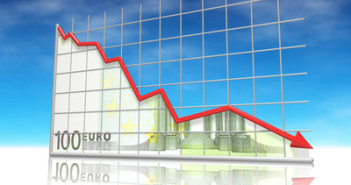Asian bourses traded in positive territory, with the exception of Thai markets that registered a 2.1% decline following the military coup on Thursday, ending six months of political turmoil that has drained economic expansion. China’s stocks climbed, in particular real estate companies, as state media announced intentions to ease restrictions on home purchase in all but the largest Chinese cities in its effort to achieve China’s economic growth target set at 7.5% in 2014. This move follows four years of government action to contain the housing market which has resulted in a deceleration in home sales and property construction and ultimately, negatively impacting GDP growth which registered its slowest expansion in six quarters at 7.4%.
In the face of isolation from the West, Russia managed to bring to fruition a 30 year contract with China, valued at $400 billion, to supply China with 38 billion cubic meters of gas to China every year starting in 2018. Last year alone, in its attempt to rein its dependence on coal, China imported 53 billion cubic meters of gas, which accounted for 31% of total domestic consumption and 28 billion cubic meters originated from central Asia. It is unlikely that this deal will mean that China will shift its focus to its more ideologically aligned partner at the other expense of other suppliers like Australia. With the shale gas revolution in the United States and Canada’s intent to become a natural gas exporter through projects in British Columbia, the competition on the world stage has intensified. From Russia’s perspective, the agreement is Putin’s way of conveying the message to Europe and the West that Russia will not be isolated.
Moving to Europe, the euro tumbled following disappointing German business confidence data and may target the 1.3600 handle in short order. For the month of May, the Ifo institute’s business climate index declined to 110.4 from 111.2 in April and the current assessment deteriorated from 115.3 to 114.8.
In other data released, GDP data from Germany in the first quarter expanded at an annualized pace of 2.5% in the first quarter, driven by domestic demand with domestic consumption climbing 1.9% and construction surging 3.6%. Retail sales in Italy declined for the fourth consecutive month in March at -3.5%, following a 1% fall the previous month. Fundamental data from the euro-zone have placed downward pressure on the euro but capital flows have removed some of the heat from negative economic fundamentals. Looking ahead to the weekend, the ECB will hold its ECB Forum on Central Banks, which traders will pay particular close attention to a speech by ECB President Draghi at a time where the euro zone is faced with near-record unemployment and dim purchasing power.
In positive news flow, Standard & Poor’s raised Spain’s credit rating to BBB, from BBB- as it cited improvement in Spain’s economy subsequent to the structural reforms enacted in 2010. Fitch ratings has also lifted Greece’s rating by one notch to B from B- with the outlook at stable, supporting the view that the southern peripheral nations are poised to return to growth.
As we head into the North American session, today’s focus will be new home sales at 10 am, expected to come in at 425,00 in April, following the print of 384,000 in March. The future markets are pointing to a positive open as it enters into the Memorial Day long weekend. Yesterday, in his speech, San Francisco Fed President Williams admitted that as the Federal Reserve moves on a trajectory to “normal†monetary policy, the path will be challenging as it will be faced with financial stability risk and large bank reserves.
The Canadian dollar is outperforming this morning on the back of inflation release which saw a headline print of 2.0% and core at 1.4% on an annualized basis, in line with forecasts. The upward pressure on inflation can be attributed to a weaker loonie, increasing gas and food prices. Although the Bank of Canada has maintained a neutral tone of late, Governor Poloz has been markedly dovish which will be challenging to maintain with this inflation reading. Markets are currently not pricing an interest rate hike in the next twelve months.
By Cheryl Girling, National Account Manager at Cambridge Mercantile Group



